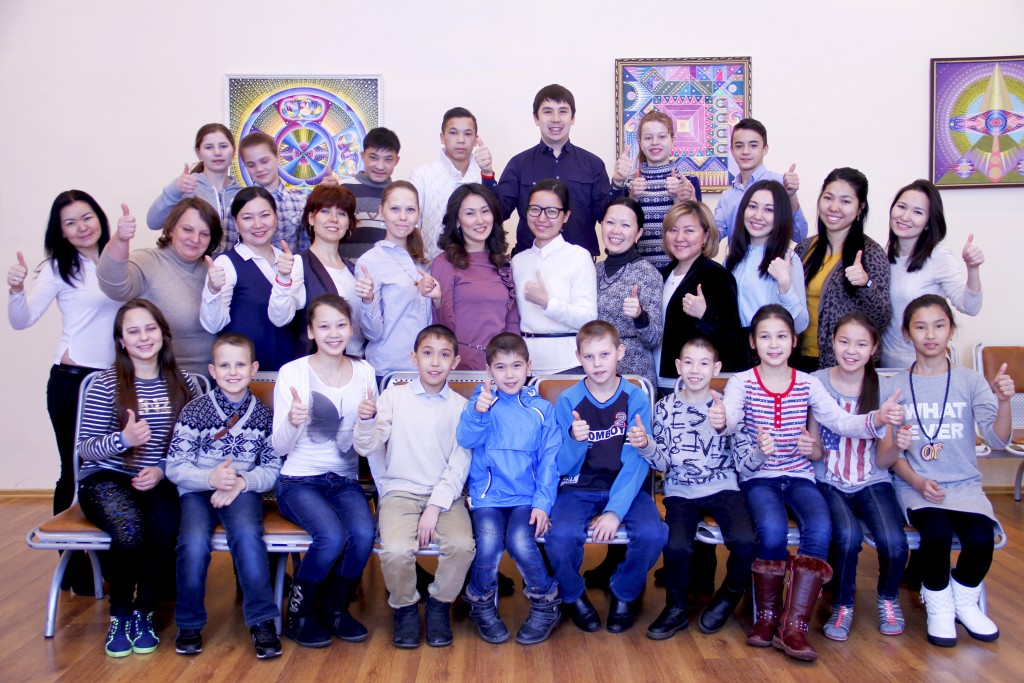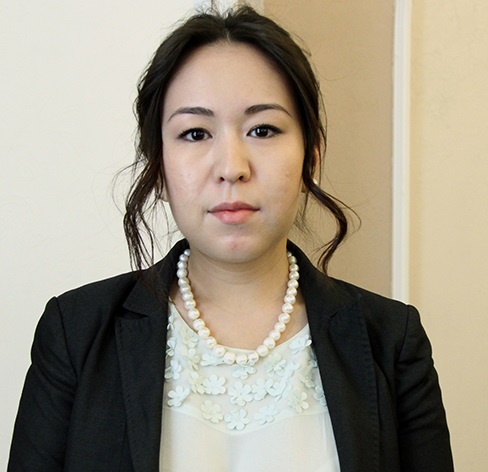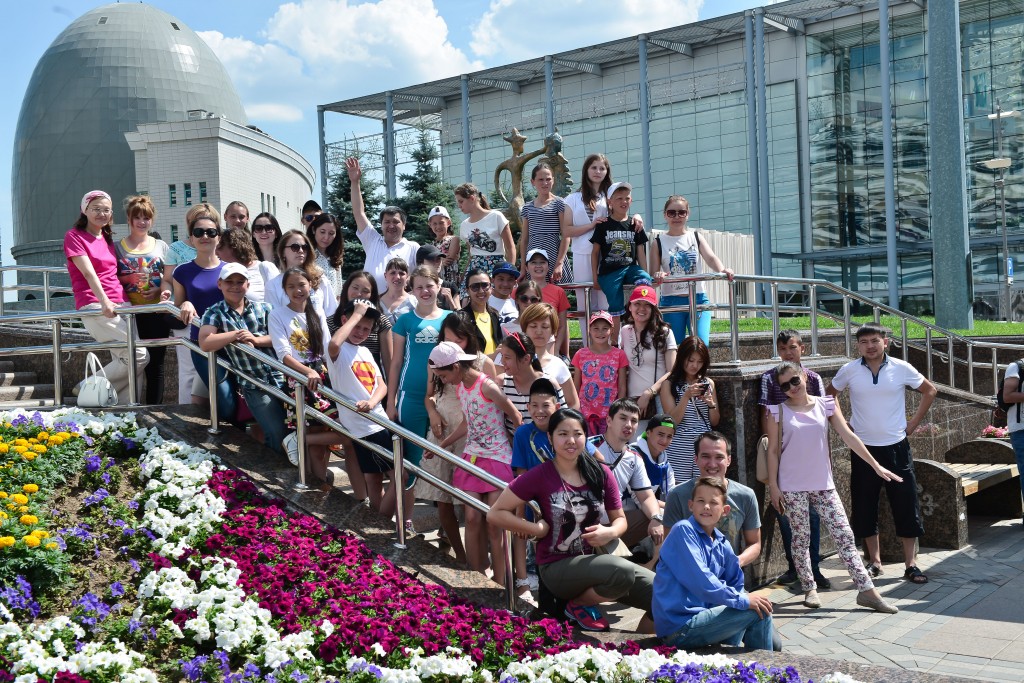ASTANA – Thousands of children throughout Kazakhstan are separated from their families through poverty, misfortune or disability and there is a lack of services to support them.
Statistics indicate children in orphanages tend to suffer psychological injuries, lack of attention and feelings of uselessness that consequently lead 50 percent of graduates to become involved in crime or commit suicide. To tackle this problem, Dara Charity Foundation launched a mentoring project for orphans.
“We have been working with orphanages over the past 10 years. Initially we carried out various activities and courses for children, but then we realised that without supporting a child emotionally, group activities have no effect and give no result. A child needs love and understanding for full and harmonious development and it is family that provides secure and loving care for children. However, given the current reality of orphanages, we launched the ‘Mentors’ project,” said foundation project manager Ainur Aimurzina in an interview with The Astana Times.
Started in Almaty, Astana and Karaganda in 2014, the programme provides a child between the ages of 10 and 14 with a caring adult who commits to building a healthy relationship with the young person. The volunteer supports and guides the child with positive academic, career and personal goals, encouraging the youngster to discover his or her potential and develop life skills.
“The mentor is a person who is at least 25 years old and who is ready to dedicate time to a child and share his or her knowledge and personal skills with kids. Human qualities are very important, too. The volunteer shall accept a child as he is and make efforts to support and show love, care and concern to the child,” she said.
Adult volunteers are trained at the mentor school, where psychologists provide the necessary knowledge and assistance. Specialists offer guidance on ways to become mentors and friends to children and teenagers. After completing the course, the volunteers become members of a long-term project and start building emotional intimacy and trusting relationship with the child.
The school makes a real effort to match each young person with the right volunteer.
“We also hold an informational meeting with children and explain to them that a mentor is someone who is willing to communicate and make friends with them and dedicate the most valuable thing on earth, his or her time to a child. Children in orphanages are not ordinary children; most of them suffer reactive attachment disorder, which is defined as a condition in which children have difficulty forming lasting relationships,” said Aimurzina.
Every week children and their mentors engage in activities such as playing games and sports, reading, doing homework, visiting museums, cinemas or theatres or just having a chat. Mentors help children believe in themselves and develop self-confidence. Their task is to create a favourable condition so that the children can have positive feelings about themselves, strengthen self-control, take responsibility and find a purpose in life.
Studies conducted to analyse the effectiveness of the project find 84 percent of children show improvements in their emotional state; they become confident and more social, proactive and energetic. Those who display avoidant personality start seeing the positive sides of life; they learn to trust and simply smile.
Children older than 15 receive assistance from professional coaches to deal with problems and fears, which contributes to making the teens less stressed and goal-oriented.
Ninety-five children are currently involved in the project in the three cities. The foundation introduced corporate mentoring in the capital this year. Companies offer internships and vocational guidance, organise open door days and may cover tuition fees.
Established in 2005, Dara Charity Foundation has been implementing various projects aimed at assisting children’s medical institutions, orphanages and boarding schools with limited abilities. They believe all children are talented and have an equal right to education and development. Therefore, most projects are aimed at aiding children in developing their imaginations, creativity and social skills.
“We are eager to help and we want to be useful to others in some way. I am happy to promote projects that are gradually improving the lives of children in orphanages. These projects are providing broader opportunities for children with limited abilities, so that in the future they could be a little happier and more successful members of society,” said Aimurzina.



